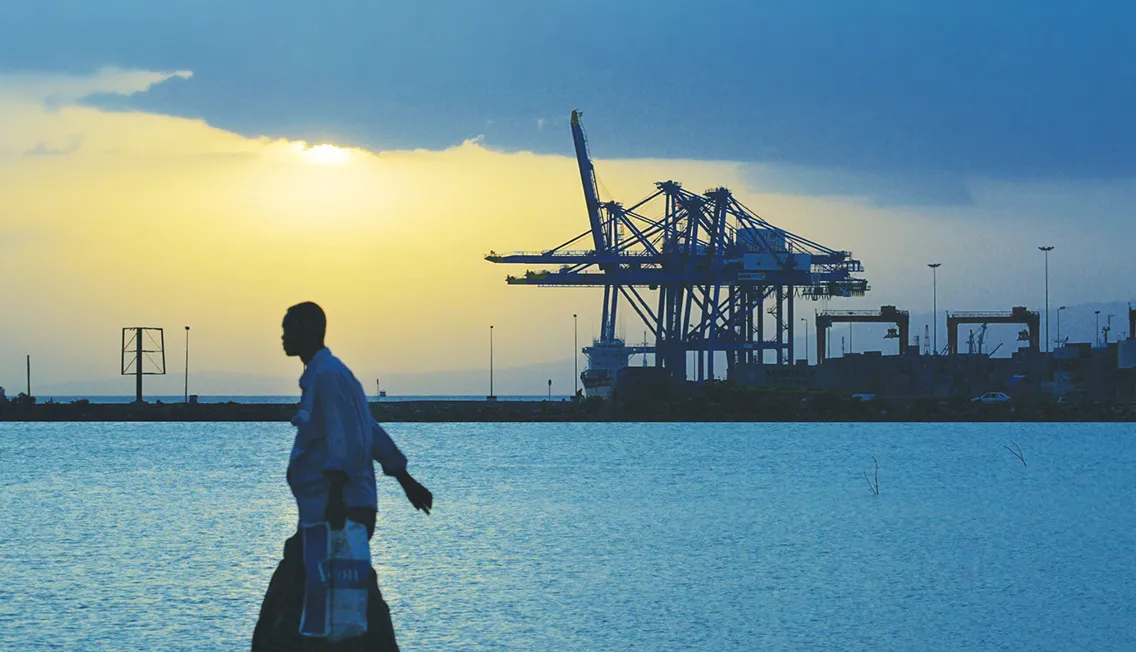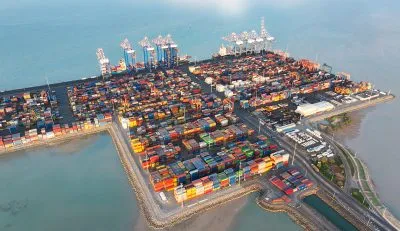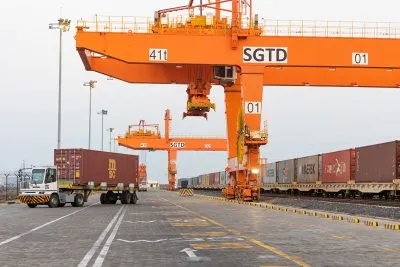Perched on the Horn of Africa, Djibouti occupies a territory so small one might miss it on a map, yet it commands the attention of global powers and investors alike. How does such a modest-sized nation emerge as a linchpin in international geopolitics and a promising investment destination? The answer lies in a combination of geography, vision, and a finely honed diplomatic instinct that has allowed Djibouti to not only survive but thrive in one of the world’s most volatile neighbourhoods.
Bordering Eritrea, Ethiopia and Somalia by land and Yemen by sea – countries historically mired in conflict – Djibouti has managed to chart a remarkably stable course. It has become something of a regional anomaly, carefully navigating the treacherous waters of East African and Red Sea politics, while avoiding entanglement in the disputes and wars that have plagued its neighbours.
This diplomatic dexterity is not accidental; it is the result of deliberate choices by Djibouti’s leadership to prioritise neutrality, open dialogue, and balanced partnerships over risky alliances. Few other nations can claim to host military bases from three of the world’s largest powers – the United States, France, and China – simultaneously, along with smaller presences from countries like Japan and Italy.
This capacity to extract value from geography is perhaps best exemplified by Djibouti’s port infrastructure. Over the past two decades, the Port of Djibouti has undergone continuous expansion and modernisation, evolving into a sophisticated logistics hub that outpaces many of its East African counterparts.
While other regional ports have often been hamstrung by inefficiencies, bureaucratic delays, and political instability, Djibouti’s facilities stand out for their operational efficiency and world-class management. Investments in deep-water berths, container terminals, and specialised facilities have positioned the port as the gateway not only to Ethiopia’s vast market – given the landlocked nature of its large neighbour – but also to broader intra-African and international trade networks.
The country’s ability to consistently maintain and upgrade this infrastructure sends a clear message to investors: Djibouti is open for business, and it understands the long-term game of competitiveness.
Yet, the port is only part of Djibouti’s story. Beneath its waters runs another network – less visible but no less significant. Djibouti has emerged as a critical node in the global digital economy, serving as the landing pad for an impressive array of submarine cables. These undersea arteries connect Asia, Africa, the Middle East, and Europe, carrying the data that fuels everything from financial transactions to cloud computing.
The country’s decision to invest in becoming a telecommunications hub is yet another testament to its strategic foresight. Recognising that physical trade alone could limit its growth potential, Djibouti has positioned itself at the forefront of the digital corridor connecting continents.
This infrastructure is vital, not just for the flow of information, but also for future ventures in digital services, fintech, and data centres – sectors poised to define economic success in the coming decades.
Solid socio-economic framework
Looking ahead, Djibouti’s ambition extends beyond ports and cables. One area of significant potential is financial services. Although the current size of Djibouti’s financial sector remains relatively modest, its ambition is big. Moreover, as regional trade under frameworks such as the African Continental Free Trade Area (AfCFTA) gains momentum, the need for reliable financial services anchored in politically stable environments will only increase.
A key factor underpinning all these developments is Djibouti’s socio-economic performance. Often overshadowed by the grandeur of its geopolitical balancing act, the country’s domestic indicators reveal a nation intent on translating its external advantages into internal gains.
Djibouti boasts the highest per capita income in East Africa. While challenges persist, the government’s investment in health, education, and infrastructure demonstrates an ambition to deliver tangible benefits to its citizens.
At the political level, Djibouti’s governance model reflects an intricate system of alliances and power-sharing arrangements that are deeply rooted in local cultural dynamics. These mechanisms often escape easy categorisation through a Western lens, as they are based on negotiated balances between different communities, clans, and political actors – structures that prioritise cohesion over contestation.
The system is complex, yet it has proven effective in maintaining national unity and preventing fragmentation in a region where divisions frequently escalate into open conflict. Far from being a rigid autocracy or a textbook democracy, Djibouti’s model is tailored to its own social fabric, emphasising stability and continuity. Perhaps the most resounding affirmation of Djibouti’s diplomatic prowess came recently, with the election of its long-serving foreign minister, Mahmoud Ali Youssouf, as Chair of the African Union Commission. This achievement is no small feat. It reflects not only Djibouti’s elevated stature in continental affairs but also the respect it commands among African peers – a recognition of its capacity to mediate, build consensus, and contribute constructively to Africa’s collective ambitions.
Admirable case study
In many ways, Djibouti is a case study in how small states can leverage their geolocation not as a curse of dependency, but as a springboard for agency. Its ability to skilfully host competing powers without becoming a pawn reflects a model of pragmatism. Investors looking for destinations that combine strategic access, stability, and growth potential would do well to take note.
Of course, like any nation, Djibouti faces hurdles. Its limited domestic market size, vulnerability to external shocks, and dependency on a narrow range of sectors require careful management. But if the country’s trajectory over the past two decades is any indication, it has shown the capacity not only to navigate these challenges but to turn them into opportunities.
Want to continue reading? Subscribe today.
You've read all your free articles for this month! Subscribe now to enjoy full access to our content.
Digital Monthly
£8.00 / month
Receive full unlimited access to our articles, opinions, podcasts and more.
Digital Yearly
£70.00 / year
Our best value offer - save £26 and gain access to all of our digital content for an entire year!

 Sign in with Google
Sign in with Google 



